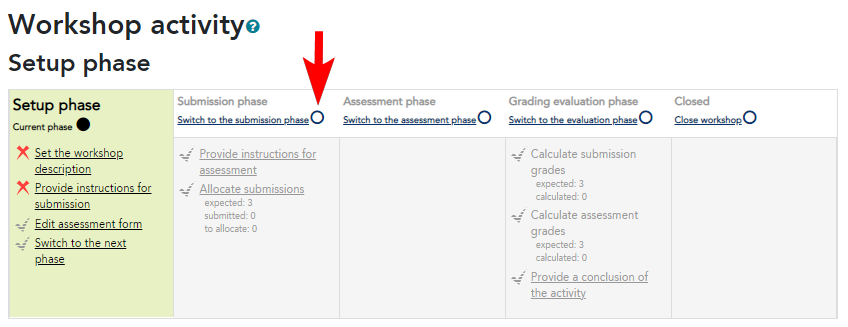Using multimedia and peer assessment to promote collaborative e-learning
The main objective of the Comunica-Media project of the Technical University of Madrid, was to "design a new didactical model to foster collaborative learnig based on multimedia resources and multimedia production by the teacher and students" (2014, 106). This objective was based on "three pillars" which were:
Collaborative learning - interactions, communications, and finally collabroation between teacher-student and among students.
Teachers' and students' abilities to produce multimedia content - not only the teacher creates multimedia resources, students should be able to do so.
Peer assessment of the multimedia resources created - students will learn from the resources created by their classmates as well as assessing them. The final grades should be considered in this assessment.
(2014, 106)
The didactical model which emerged from this research project was made up of five activities which required students to assess the multimedia work of their teachers, create their own multimedia content, and assess the multimedia content of their peers. The didactical model was applied to the 15 week long, fully-online course 'International Seminars on Materials Science' which was offered by the Department of Materials Science. The model was made up of five activities which required students to assess the multimedia work of their teachers, create their own multimedia content, and assess the multimedia content of their peers. The research covers two instances of the course, and a total of 57 students from a diversity of backgrounds who completed the course. It should be noted that all students had no previous experience in the field of Materials Science or in the creaion of multimedia resources (2014, 111).
A number of Moodle activities were used for this didactical model, including the Forum and the Workshop activity. For this activity, each student was radomly assigned a number of resources from their peers to evaluate and review. Moodle also assigned a mark to each student's evaluation. The nearer the reviewer's mark was to the average evaluation mark given by other reviewes, the higher the mark they received. In this instance, the student's were required to evaluate 12 of their peer's multimedia resources against a predefined rubric. The rubric included content organisation, communication skills, presentation design, creativity, and other criteria. Data obtained from the Moodle platform confirms that students reviewed the multimedia resources created by their peers. Survey data suggests that the students who created screencasts (as opposed to a presentation) showed more interest in the course, and obtained higher grades in reviewing their classmates' resources.
While the researchers note their lack of a control group as a limitation of the study, they note that the "introduction of student' production of the multimedia resources together with its peer assessment encourages them to actively participate in the collaborative learning process" (2014, 119).
Enrique Barra, Sandra Aguirre Herrera, Jose Ygnacio Pastor Caño & Juan Quemada Vives (2014) Using multimedia and peer assessment to promote collaborative e-learning, New Review of Hypermedia and Multimedia, 20:2, 103-121, DOI:10.1080/13614568.2013.857728, available at: http://www.tandfonline.com/doi/abs/10.1080/13614568.2013.857728#.V5lWBEYposI
Using Workshop as part of a 3rd year Bachelor of Nursing course at the University of Glasgow
The Workshop activity was used as a formative assessment task for around 50, 3rd year undergraduate students in their final year of the Bachelor on Nursing at the University of Glasgow. Students were required to submit a 1000 word assignment. Permission was gained from a previous student to provide the cohort with an exemplar assignment, which was made available in Moodle (LEO).
Each student was required to submit one piece of work for assessment, and was randomly assigned another student's submission to grade (this functionality is available in the Workshop activity).
Some failings of this pilot use of the Workshop tool included confusion around weightings assigned to the peer-assessment element of the task, confusion around how to upload a file to Moodle for the purposes of peer-assessment, and non-submission. The latter two in particular were problematic in that some students were disadvantaged in terms of either not receiving feedback, or not being able to provide feedback, because of non-participation from the student they were matched with.
17 students contributed to a SurveyMonkey survey regarding their feelings towards the use of the Workshop activity for the purposes of peer-assessment.
Approximately half of the respondents (53%) considered they had a better understanding of the assessment criteria as a result of this activity, with (47%) disagreeing with this statement to some degree. The researchers found out that this cohort had all been a part of a Facebook group, and had previously agreed to all award each other an 'A' irrespective of performance, as they felt resentful about having to take part in this exercise. However 82% of students stated they had been honest and objective with the grade they awarded.
The authors conclude that despite the noted weaknesses of the Workshop process, their are benefits for students in participating in peer-assessment. They noted that about half of the students who participated in the Workshop activity felt more confident in their academic abilities.
Brown, C., Honeychurch, S., and Munro, J. (2011) Workshop in Moodle: a tool for peer critiquing. In: 2011 International Computer Assisted Assessment (CAA) Conference Research into E-Assessment, Southampton, UK, 5-6 Jul 2011, available at: http://eprints.gla.ac.uk/55384/1/55384.pdf
Exploring online peer-assessment using the Workshop activity
Exploring online peer assessment using the workshop activity - Professor Mary Barrett embedded from https://www.slideshare.net/MoodlemootAU2014/sandra-humphrey-moodlemoot-2014-latest.


